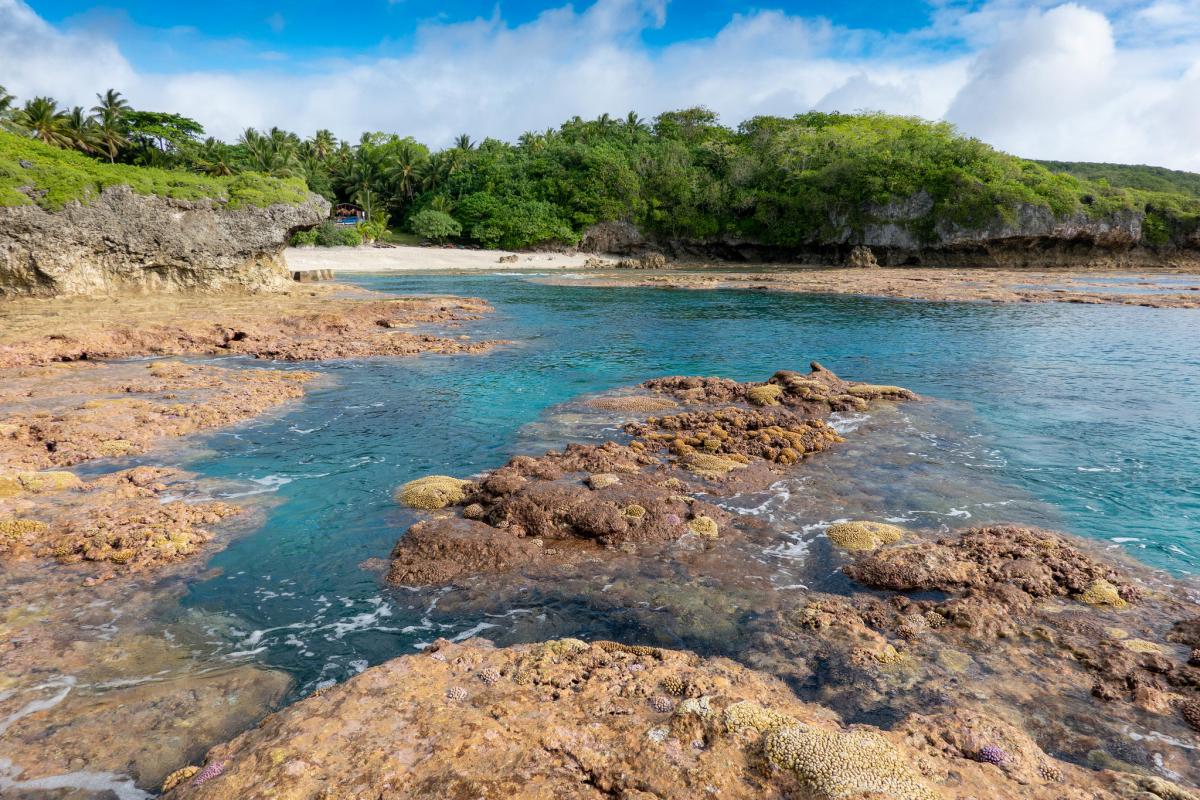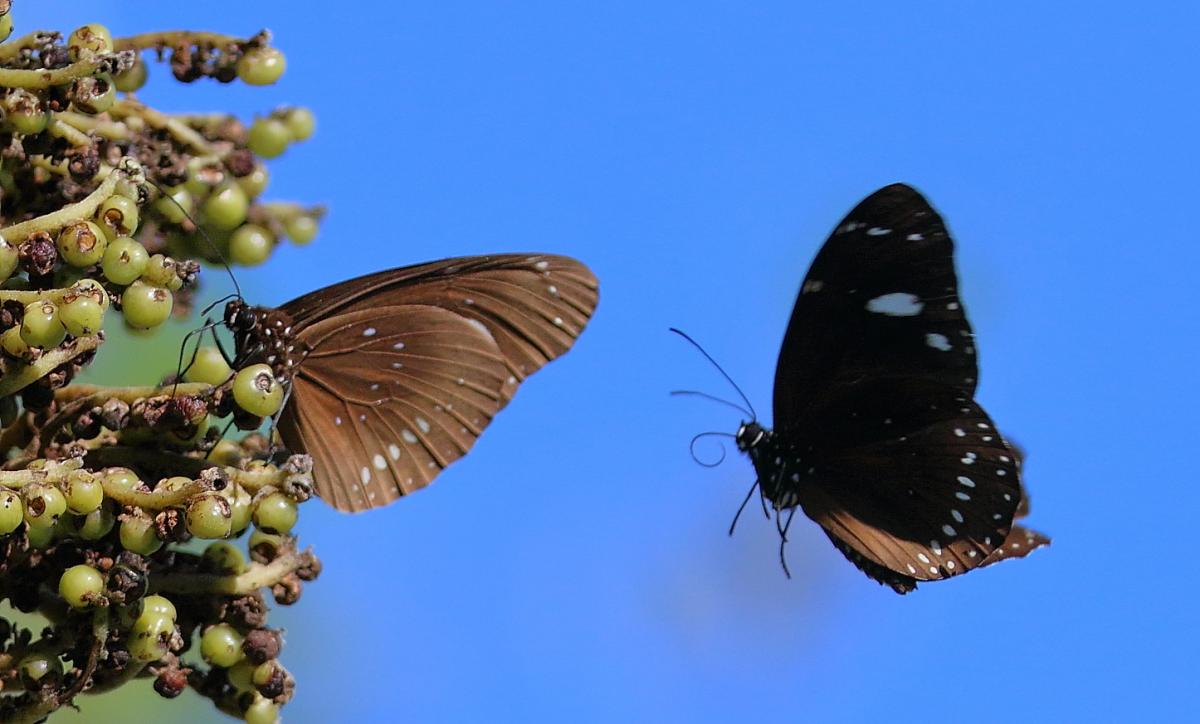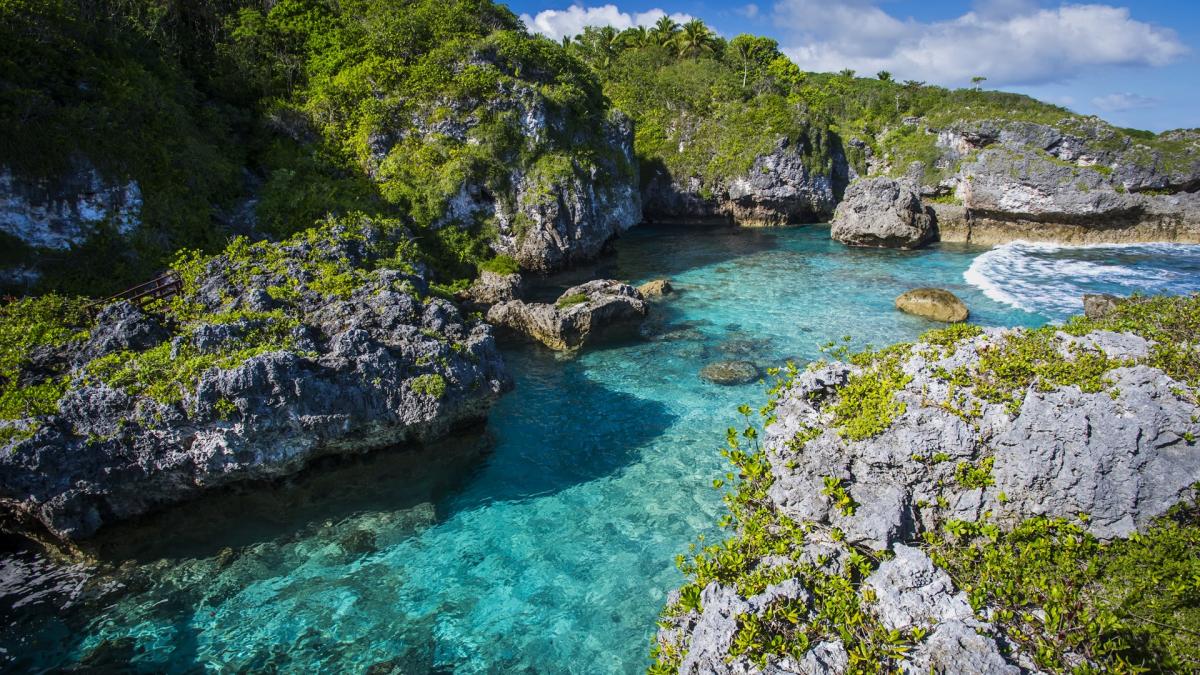E6AM Team will be active from Niue Island, IOTA OC - 040, 10 - 27 October 2023.
Team - LZ1GC, LZ1ON.
Recent DX Spots E6AM
E6AM Log search They will operate on 160 - 6m, including WARC and 60m Bands, CW, SSB, FT8.
QSL via LZ1GC, LOTW, ClubLog OQRS, QRZ com Log Book.
Ads for direct QSL:
Stanislav Vatev, ul. "Gen.Karcov" 6 A, 4300, Karlovo, Bulgaria.
The equipment will be:
Transceivers: Yaesu FT DX 10 & Kenwood TS 480 SAT
Linear amplifiers: ACOM 1200S ( 1.2 KW ) and ACOM 700S ( 700 watts ).
The antennas will be the same as antennas which he used during previously DXpeditions.
On 6 m, I will be use 4 El yagi antenna!
E6AM Niue Island News 10 October 2023
E6AM DX Pedition start activity from Niue Island.
Niue
The new poetic name of the island of Niue (emphasis on the letter "U"), whose coat of arms features a white woman and a red-skinned Indian leader, has replaced the more tongue-in-cheek old name "savage". In the original language (English), the first name means "savage" - in exact accordance with the impressions left by James Cook, whose foot first of Europeans entered the land of the island with a total area of 261.465 square kilometers.
 Niue Island. Author - Stu Drake.
Niue Island. Author - Stu Drake.
What frightened Cook, or a small historical excursion
As soon as in 1774 the brigantines of the famous navigator threw their anchors into the emerald-blue waters of the Pacific Ocean, splashing near the rocky shore of the amazing, drowning in greenery and flowers, the joy of Cook and his crew was instantly replaced by wariness, turning into terror. And there was something to grab the hands of brave sailors for their muskets: from everywhere to the shoreline began to run like red ants, hundreds of Indians, painted in a martial way. Their stern faces showed so much hostility that the leather boot of the strangers did not long trample the sandy surf line.
A little while later, already in his cabin, having recovered from what he had seen and charting the newly discovered land, James Cook christened it "Wilderness", for no other term came to the mind of the long-sighted subject of the English crown.
"Strange name" why the island is named Niue
If you look in the island's official papers, its name there is a bit longer: Niue-fekai. Of course, the British only phonetically adapted the natives' language to their own, creating the name in an anglicized version. This is why "Niue" does not translate from English in any way, as the word is from the Niue language of the same name, which belongs to the Polynesian family.
The ancient Niue, whose alphabet has only 17 letters, is spoken by about 8,000 people in the world, and the ancestors of the native speakers long ago gave the original name of the island as "Nuku-tu-taha". This is a transcribed version meaning "island standing alone". According to an old local legend, the lands of Niue were discovered not by Cook, but by the navigator Huanaqui long before the expedition of the famous traveler from England!
Historiography of the island knows a couple or three more of its interesting names, received in time immemorial. Quite often these out-of-use names "flicker" in legends, legends and traditions carefully preserved by the old inhabitants of the island.
If you translate the official name of the island from Niue, you get a phrase like "there's a coconut palm and a cannibal". It's a funny name, considering that not a single case of cannibalism has been registered on the island.
 Niue Island. Author - CTEBA94.
Niue Island. Author - CTEBA94.
"Still wild?": what beneficial and not-so-beneficial changes the island has undergone
Of course not! It is now an active member of the South Pacific Commission and the Pacific Islands Forum. A modern but distinctive state with a self-governing system of administration, it is in a peculiar relationship with a rather distant (about 2400 kilometers distance to Auckland!) neighboring island - New Zealand.
Niue, being in goodwill association with the Kingdom of New Zealand, thus acts as an administrative-territorial unit of the latter.
Exactly at the beginning of the 20th century (1900) the island was "under the wing" of the motherland of its discoverer - Great Britain, which officially became its protectorate. A year later, England was replaced by New Zealand, in a new political status. Officially joining the commonwealth with New Zealand, Niue, for economic and political reasons, since 1974 gave up the independence that had burdened it, switching to self-government. However, the island retains some autonomous levers of power: for example, regional international relations remain entirely Niue's own prerogative and no one has any right to influence its decisions.
Pacific Ocean neighbors and other interesting features
The warm waters of the deceptively Pacific Ocean wash the shores of more than just New Zealand and Niue: its friendly neighbors, across territorial waters, are three islands:
- Tonga (480 kilometers to the east);
- The American archipelago of Samoa;
- Cook Island (930 km to the west).
There is not much population on this rather small piece of land, just a little more than one and a half thousand people. For obvious reasons (small area, modest number of inhabitants, administrative-territorial structure) Niue does not even have a capital in the literal sense of the term: its role is performed by Alofi - a small village.
Curiously, the collective name of Niue means not only the state itself, located on a single atoll, raised from the abyss of the sea, but also three reefs:
- Beveridge Seamount, exposed at low tide;
- the Antipope Plateau, discovered in 1886;
- Harens, in honor of the navigator who spotted it in 1848.
The reefs, dislocated in the same Pacific Ocean, are hidden by its depths somewhere between the Tropic of Capricorn and the Equator line. It is noteworthy that there are no other large atolls like Niue, raised from the ocean to such a great height (68 meters) in the world.
Interestingly, according to geologists' predictions, Niue in a couple or three million years awaits a sad end: it will literally fall into a deep trough. Tonga. The fact is that the lithospheric plate of the Pacific Ocean by a centimeter a year, inexorably and purposefully, moving northwest, straight to the faults in the form of two deep-sea troughs. Together with the plate, Niue, located on it, is rushing towards the abyss.
 Niue Island.
Niue Island.
What a land of "coconuts and cannibals"
About 2.5 to 3 million years ago, the island was a fire-breathing volcano, spewing out streams of magma and lava. Then the volcano sank into the ocean and "died", but its decomposing vent and coral life gradually formed a piece of more or less flat land with hills, which became a picturesque island of "coconut palm and cannibals", which, incidentally, no one has seen there.
Chemically, the island has a lot of limestone - such is the composition of the plateau where the volcano once blazed. Lime, that's actually all the minerals. So on Niue in principle there are no geological surveys and mining of minerals, as well as particularly developed agriculture - the soils are very poor.
One should notice the obvious bowl-shape of the land: Niue's coastline is twice as high as its center! Nature does a good job of protecting the beautiful island from the curious. It is hard to imagine how Cook reached Niue, through those cruel rocky shores, steep and, like holes in Swiss cheese, decorated with numerous caves. In addition, the perimeter of the entire island is ringed by underwater reefs.
"What's up with the weather" - climatic features of Savage Island
It is hot and humid, like most islands in this climate zone. As the island's surface is devoid of mountains, the temperature regime is the same almost everywhere and stays at 30 °C in the humid summer and 26 °C in the "dry" winter. Visitors to Niue should pack their bags during the "winter" period, which begins in April. During this time, up until October, the days are not so hot, but very sunny and windy.
Of course, Niue is occasionally hit by tropical cyclones: this happens once a decade. Powerful storms, unlike cyclones, are more regular: every winter, from April to October, the rocky shores resist the steep waves.

